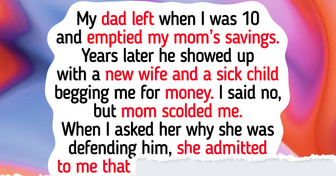nice
Pediatricians Share 20+ Tips You Can Use to Discipline Your Kids Based on Their Age
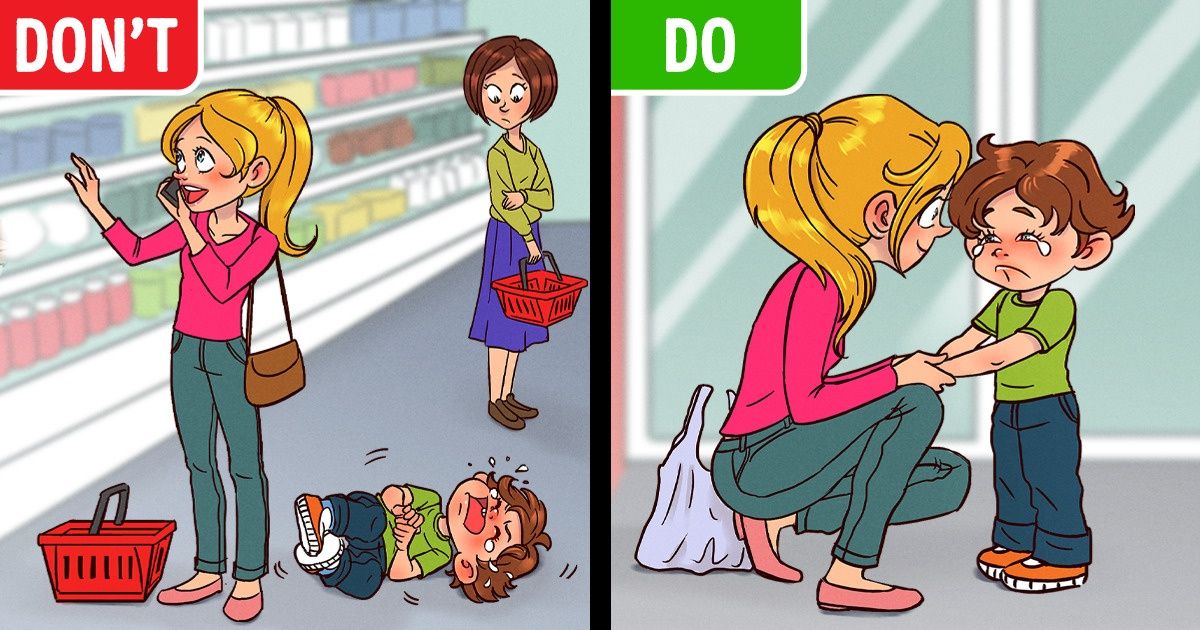
Disciplining a child isn’t about punishing them, it’s about improving their behavior. Only then can they grow up to be psychologically and socially stable adults. But the same tactics for teaching discipline to a 2-year-old won’t work with a 10-year-old. Many parents may be tempted to resort to punishments as a remedy for all ages, but there are other more simple and effective strategies recommended by pediatricians to teach children to be disciplined.
Bright Side has summed up a set of steps, for you, to disciplining your kids according to their age.
1 to 2-year-olds
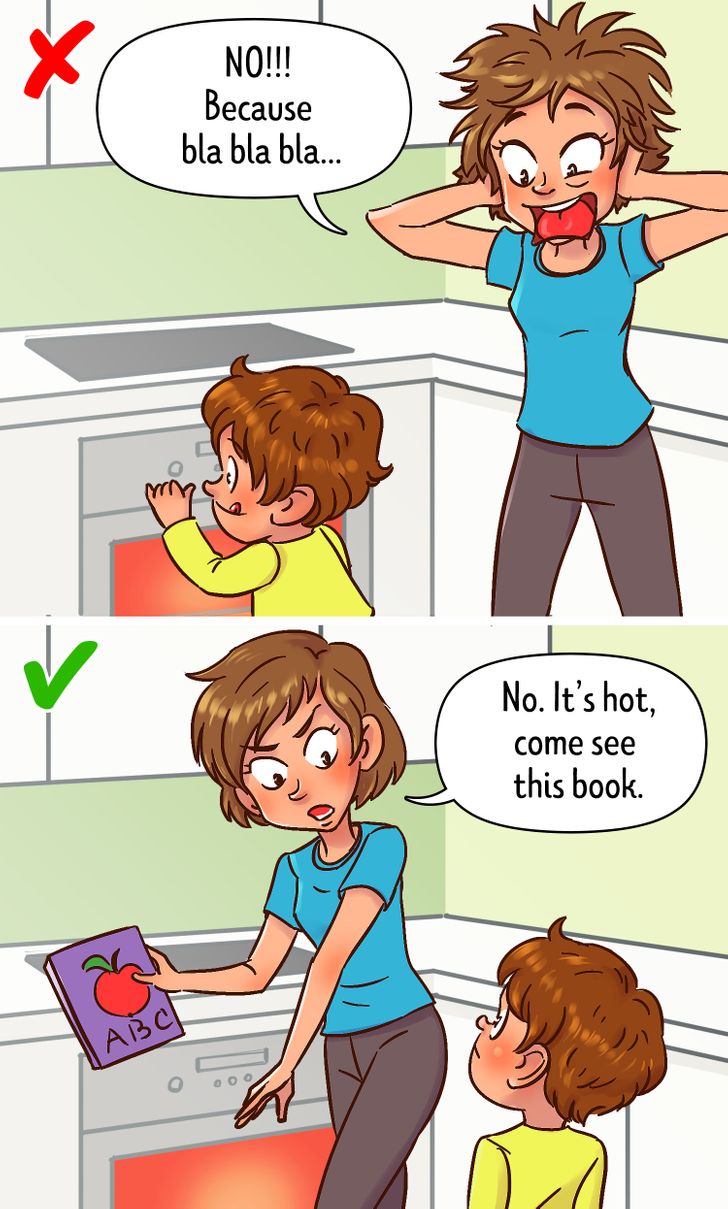
One to 2-year-olds are in a phase known as the early toddler stage. They like to explore their world, so go ahead and let them. Just be sure to not leave the child alone and to supervise them to make sure they doesn’t harm themselves and others.
THINGS TO AVOID:
- Timeouts, toddlers are very sensitive to the fear of abandonment.
- Yelling, they shouldn’t experience a sense of being unloved.
- Prohibitions and lengthy explanations, their language is still developing and they’re not old enough to know how to interpret and respond to them.
TRY INSTEAD:
- Moving the toddler from the source of harm, whether it’s an activity or object, and command a solid “NO.” You can accompany it with a clear explanation like a “NO, it’s hot.”
- Redirecting the child’s attention to another object or scene.
- Staying close to the child to make sure they don’t experience feelings of being unloved and unprotected, and to avoid any harm done.
2 to 3-year-olds
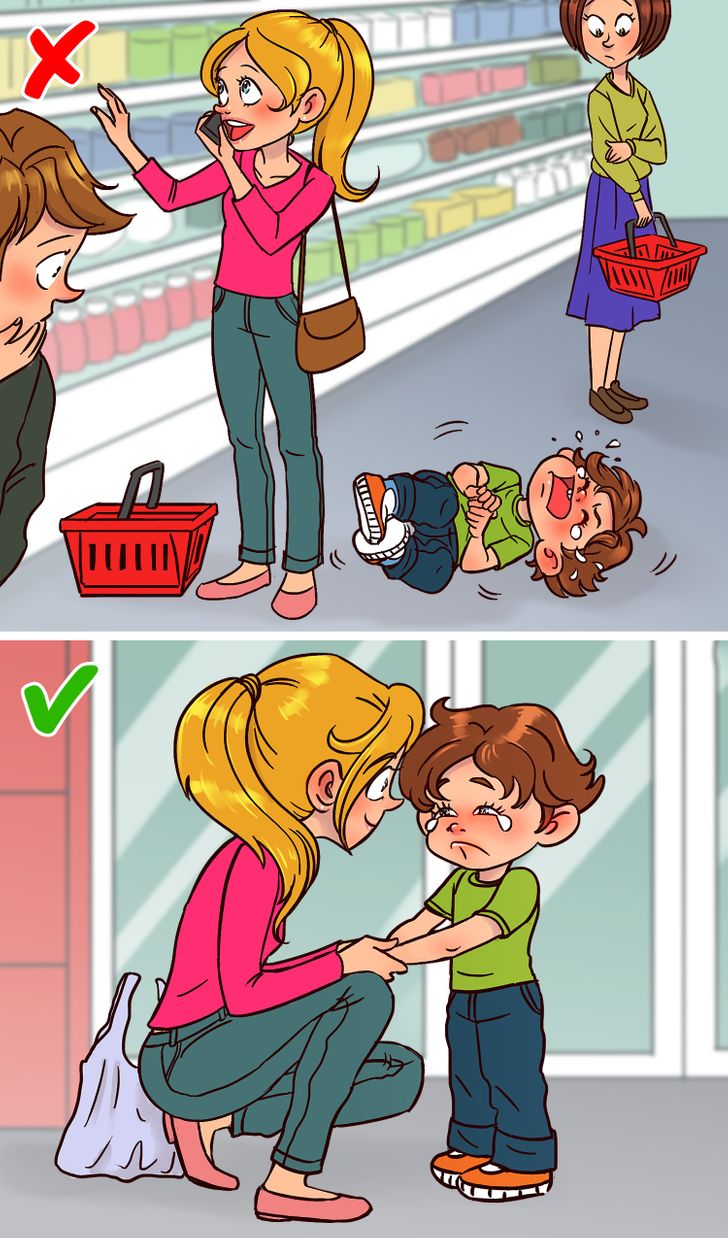
Late toddlers, that is, children between 2 and 3 years old, are on a constant effort to gain autonomy and self-assertion, while learning there are limitations. This leads to frustration and the long-dreaded temper tantrums.
THINGS TO AVOID:
- Prohibiting things
- Ignoring the child, assuming they’ll regain control of themselves shortly. That won’t happen.
- Spanking, always
TRY INSTEAD:
- Not losing control. Temper tantrums are not anger and defiance. Try to empathize with the toddler, so that you don’t show frustration.
- Removing the child from the scene.
- Calming them by holding them so that they can pull themselves together again. Ask why they’re behaving like that. Maybe they’re scared, stressed, or tired.
- Explaining the situation calmly and clearly. Then comforting them and giving them an example of appropriate behavior.
3 to 5-year-olds
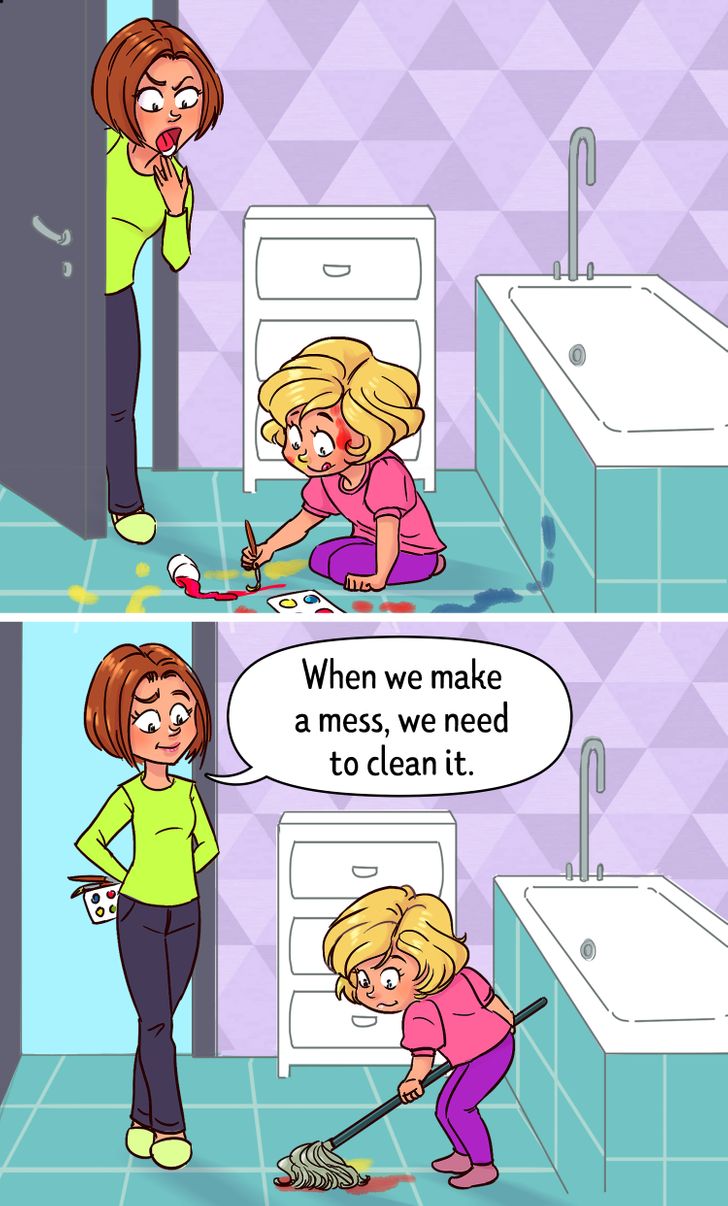
Children who are at an age where they are attending preschool and kindergarten have learned to acknowledge reality and limitations, but still require some help to internalize rules and develop reliable and sound judgment.
THINGS TO AVOID:
- Lectures and long talks, they will have no effect on the child’s behavior and could even be counterproductive.
- Threating the child, if there aren’t going to be any consequences. This will only teach them that rules don’t really mean anything.
TRY INSTEAD:
- Establishing and consistently enforcing rules. They can now understand them and follow them.
- Giving the child some direction to show them the appropriate behavior.
- Using a time-out if the kid is out of control. The number of minutes should be the same as the age of the child, with a maximum of 5 minutes.
- Educating them by allowing the logical consequences of their bad conduct to impact them.
- Preventing undesirable behavior by complimenting good behavior. This will encourage kids around these ages because they like to gain other’s approval.
6 to 12-year-olds
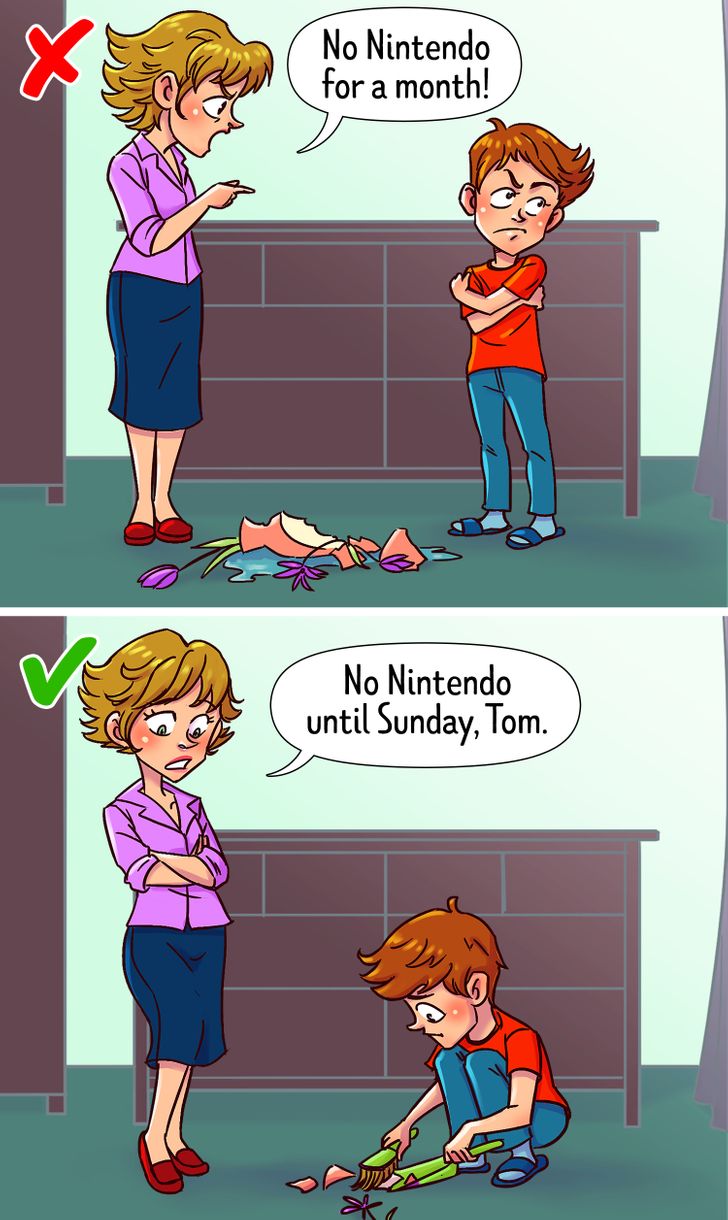
In this period starting at 6 years old, children will be gaining more and more autonomy, which they may want to affirm in front of their parents and begin conflict. They can now pick their friends and interests, but parents are still in control of the important decisions since children between 6 to 12 don’t always analyze their decisions as thoroughly as adults.
THINGS TO AVOID:
- Setting unrealistic punishments for bad behavior. Grounding a 10-year-old with no Nintendo for a month probably won’t happen.
- Humiliating and embarrassing the kid for their unacceptable conduct in front of other people. They need a good, well-rounded role model.
- Discussing the incident with the child, while trying to discipline them. Otherwise, your authority will be overruled.
TRY INSTEAD:
- A nonjudgmental reasonable talk
- Understanding age-appropriate behavior. If a 6-year-old girl is swinging her legs while sitting, she’s just a 6-year-old.
- Establishing and abiding by the house rules. Always. This will confirm your authority.
- Removing or delaying privileges like toys and dessert. Remember, you should be realistic.
- Letting the logical consequences of their bad behavior affect them.
13 to 18-year-olds
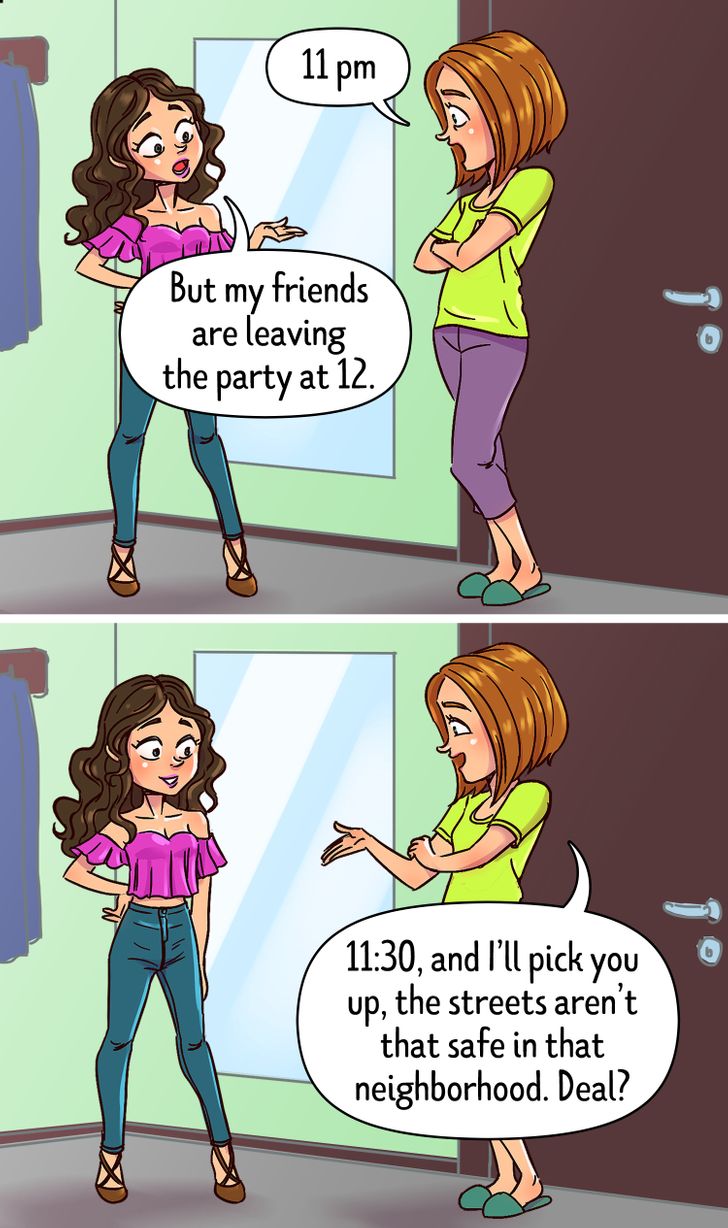
Adolescents are known for defying their parents values and rules. They’re trying to find their own sense of self and assert their individuality so they distance themselves a bit from their parents and tend to act impulsively. So an era of difficult conflict begins.
THINGS TO AVOID:
- Deprecating the adolescent, especially in front of strangers and their peers.
- Lectures. Be transparent, precise, and direct with the message you want to transmit.
- The “I told you so” in your vocabulary.
TRY INSTEAD:
- Setting rules according to their age, in a noncritical manner. It’s crucial that you abide by them.
- Letting the natural consequences of their misconduct happen. Keep a nonconfrontational attitude. If they broke a window with their soccer ball, let them pay for it with their allowance.
- Negotiating about light subjects with a teenager. This gives them a feeling of independence and of being part of the decision.
- Staying approachable. Many teens seek and want parental guidance and approval to guide their conduct.
Do you know of any other tactics that should be on this list? Which age do you think is the hardest for teaching discipline? Write your thoughts below!
Comments
Seriously, I’m 10 and I’ve never even touched a nintento

Related Reads
14 People Who Just Went With the Flow and Ended Up With a Story Worth Telling

I Absolutely Refuse to Give Up My Apartment for My Sister and Her 3 Kids
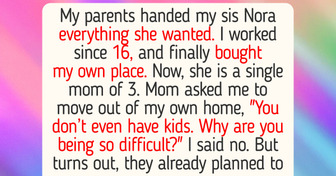
I Refuse to Be Held Responsible for the Parents Who Abandoned Me
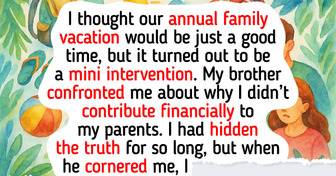
I Quit After My Boss Punished Me for Attending My Mom’s Surgery
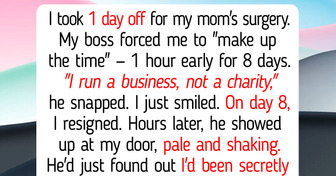
I Refuse to Help My Parents Who Abandoned Me at 18
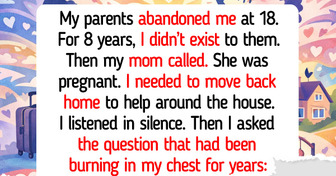
10 Stepchildren Who Opened Their Hearts to Love Again

My MIL Demanded Rent for a House That Isn’t Hers, I Turned the Tables

16 Stories That Prove a Dad’s Love Is the Most Powerful Magic in the World
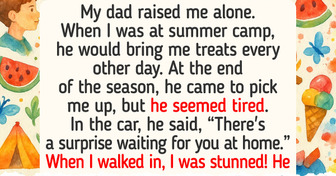
I Refused to Be the Fall Guy After My Boss Called Me "Useless"—I Had Him Reassigned and Took His Clients

I Found Out My MIL Was Sabotaging My Gender Reveal—Now I’m the Family Villain
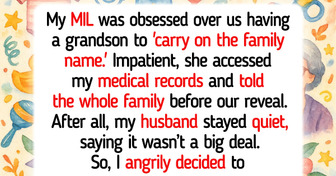
12 Times Kindness Stopped Damage From Becoming Destiny

I Refused to Help My Dad With His Hospital Bills, I’m Not Here to Rescue Him
